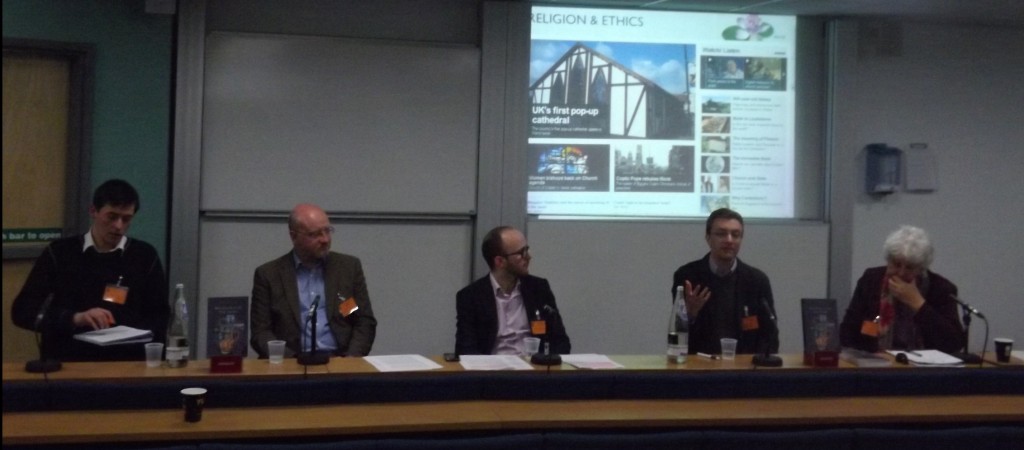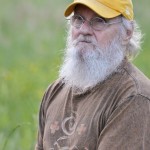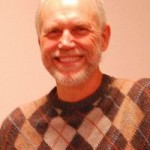Religion and the Law
Within modern American society the meme of a separation of Church and State exists without a doubt; however, there is very little evidence to actually prove that this separation exists, functions as such, or indeed that it ever existed. In the textbooks, popular news outlets and in the political arena religion is supposed to be wholly withheld-expelled in favor of majority rule. However, when we turn our attention to state-managed organizations such as the federal prisons or state forest services or support for military veterans, we find that the lines are blurred.
With an eye to this seemingly ironic phenomenon Winnifred Fallers Sullivan presented a lecture entitled “Ministries of Presence: Chaplains as Priests of the Secular” at Arizona State University as part of the ASU Center for Religion and Conflict’s lecture series. Excerpted from her upcoming book of the same title, Sullivan considers the oversight, regulation and licensure of religious chaplains within the American Veterans’ Administration, as well several other governmental and on-governmental institutions. In this interview with Chris Duncan (Arizona State University), the discussion centers predominantly on the world in which many chaplains come to find themselves due to a “new kind of religious universalism”; from having to be prepared to minister across the borders of their own religious traditions, as in the case of a Catholic chaplain being required to assist Jewish or otherwise non-Catholic practitioners in a federal prison or a chaplain working with the state of Maine Warden Service. Sullivan asks whether we really have a separation of the Church and the State, how do we insure that everyone’s religious needs are being met within secular institutions like the Veterans’ Administration, and how does the State license and approve of applicants to the chaplaincy- how does, should, could an ostensibly secular federal organization approve or disapprove of religious ministers within its ranks.
Religion and the News Panel
It goes without saying that 'religion' is a topic that frequently finds itself in the media spotlight. Whether we are talking about the recent Boston Marathon bombings, the funeral of Margaret Thatcher, the Arab Spring, or the recent critique of the UK government's welfare policy levelled by four major British churches, the ways in which the media negotiates, constructs and engages with this complex category has an enormous impact upon public opinion and understanding, and is increasingly relevant to academics, religious practitioners, journalists and the wider public. It was with this in mind that the Religious Studies Project, in collaboration with the Journal of Religion, Media and Digital Culture, presented a panel session at the British Sociological Association's Sociology of Religion Study Group Conference in Durham on 10 April 2013. This panel session brought together Eileen Barker, Tim Hutchings, Christopher Landau and David Wilson, who each have a unique position on this topic by virtue of their positions working with or for the media, to discuss and reflect on a recent edited volume by Jolyon Mitchell and Owen Gower - aptly titled Religion and the News. This podcast presents the edited audio recording of this panel session, and marks a new development for the Religious Studies Project which shall hopefully be employed at future conferences.
You can also download this panel discussion, and subscribe to receive our weekly podcast, on iTunes. And if you enjoyed it, please take a moment to rate us, or use our Amazon.co.uk or Amazon.com link to support us when buying your important books etc. As a result of this podcast, David Wilson also published a review of the book in the Journal of Religion, Media & Digital Culture.
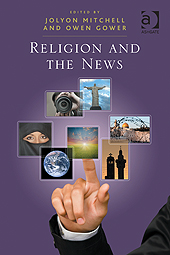 Religion in the News is an edited volume, published in October 2012 by Ashgate, and edited by Jolyon Mitchell and Owen Gower. Jolyon Mitchell is the Director of the Centre for Theology and Public Issues at the University of Edinburgh, where he is also senior lecturer in Communications, Theology & Ethics, and convenor of the Theology & Ethics subject area. Owen Gower is a Senior Fellow at Cumberland Lodge, an educational charity specializing in cross-sector co-operation and matters affecting the development of society. The book brings together academics, practitioners, and media professionals in a collection of 19 chapters exploring everything form the news coverage of the "Occupy" protests at St Paul's Cathedral in London, to the representation of Sikhs in the mainstream media, and from the problematic notion of journalistic neutrality, to the problematic definition of religion.
Religion in the News is an edited volume, published in October 2012 by Ashgate, and edited by Jolyon Mitchell and Owen Gower. Jolyon Mitchell is the Director of the Centre for Theology and Public Issues at the University of Edinburgh, where he is also senior lecturer in Communications, Theology & Ethics, and convenor of the Theology & Ethics subject area. Owen Gower is a Senior Fellow at Cumberland Lodge, an educational charity specializing in cross-sector co-operation and matters affecting the development of society. The book brings together academics, practitioners, and media professionals in a collection of 19 chapters exploring everything form the news coverage of the "Occupy" protests at St Paul's Cathedral in London, to the representation of Sikhs in the mainstream media, and from the problematic notion of journalistic neutrality, to the problematic definition of religion.
Reflective of this diverse range of perspectives in the book, we brought together four academics who each have a unique position on the contents of the book by virtue of their positions working with or for the media. Their biographies are presented below, in the order in which they speak.
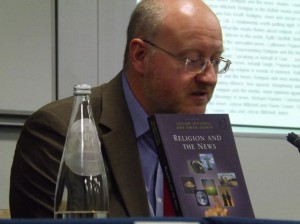 David Gordon Wilson wears many hats. He served as a solicitor, then partner, then managing partner in Scotland, the United Arab Emirates, Oman, and Egypt, before returning to university to embark on a Religious Studies degree. His PhD at the University of Edinburgh focused upon spiritualist mediumship as a contemporary form of shamanism, and his monograph has recently been published with Bloomsbury, titled Redefining Shamanisms: Spiritualist Mediums and Other Traditional Shamans as Apprenticeship Outcomes. Wearing one of his other hats, David is a practising spiritualist medium and healer, and among his many connected roles, he is currently the President of the Scottish Association of Spiritual Healers.
David Gordon Wilson wears many hats. He served as a solicitor, then partner, then managing partner in Scotland, the United Arab Emirates, Oman, and Egypt, before returning to university to embark on a Religious Studies degree. His PhD at the University of Edinburgh focused upon spiritualist mediumship as a contemporary form of shamanism, and his monograph has recently been published with Bloomsbury, titled Redefining Shamanisms: Spiritualist Mediums and Other Traditional Shamans as Apprenticeship Outcomes. Wearing one of his other hats, David is a practising spiritualist medium and healer, and among his many connected roles, he is currently the President of the Scottish Association of Spiritual Healers.
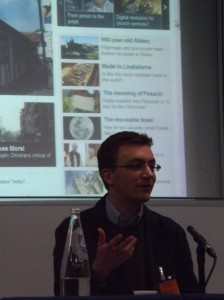 Christopher Landau studied Theology at Cambridge University before gaining a BBC News traineeship in 2002. He spent eight years at the BBC, working as a radio reporter and television news producer, both in general news journalism and as a specialist covering religion. He was a reporter for Sunday, and then World at One and PM on Radio 4 before being appointed World Service religious affairs correspondent in 2008. In 2010 he left the BBC to begin doctoral studies at Oxford University combined with training for ordination in the Church of England. He is involved with a project to establish a Religion Media Centre, based on the model of the Science Media Centre.
Christopher Landau studied Theology at Cambridge University before gaining a BBC News traineeship in 2002. He spent eight years at the BBC, working as a radio reporter and television news producer, both in general news journalism and as a specialist covering religion. He was a reporter for Sunday, and then World at One and PM on Radio 4 before being appointed World Service religious affairs correspondent in 2008. In 2010 he left the BBC to begin doctoral studies at Oxford University combined with training for ordination in the Church of England. He is involved with a project to establish a Religion Media Centre, based on the model of the Science Media Centre.
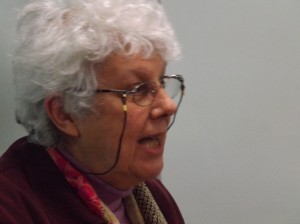 Eileen Barker is Professor Emeritus of Sociology with Special Reference to the Study of Religion at the London School of Economics,University of London. Her main research interests are ‘cults’, ‘sects’ and new religious movements, and changes in the religious situation in post-communist countries. She has over 350 publications (translated into 27 different languages), which include the award-winning The Making of a Moonie: Brainwashing or Choice? and New Religious Movements: A Practical Introduction. In the late 1980s, with the support of the British Government and mainstream Churches, she founded INFORM, an educational charity based at the LSE which aims to provide information about minority religions that is as accurate, objective and up-to-date as possible. She is a frequent advisor to governments, other official bodies and law-enforcement agencies throughout the world, has made numerous appearances on television and radio, and has been invited to give guest lectures in over 50 countries.
Eileen Barker is Professor Emeritus of Sociology with Special Reference to the Study of Religion at the London School of Economics,University of London. Her main research interests are ‘cults’, ‘sects’ and new religious movements, and changes in the religious situation in post-communist countries. She has over 350 publications (translated into 27 different languages), which include the award-winning The Making of a Moonie: Brainwashing or Choice? and New Religious Movements: A Practical Introduction. In the late 1980s, with the support of the British Government and mainstream Churches, she founded INFORM, an educational charity based at the LSE which aims to provide information about minority religions that is as accurate, objective and up-to-date as possible. She is a frequent advisor to governments, other official bodies and law-enforcement agencies throughout the world, has made numerous appearances on television and radio, and has been invited to give guest lectures in over 50 countries.
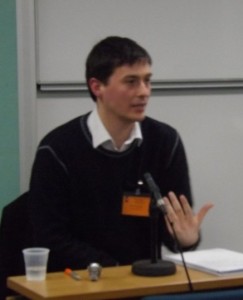 Tim Hutchings is a sociologist of religion, media and culture, and currently Research Fellow at the Open University. His research interests include digital Christianity, death and media, and the digital humanities. He received his PhD ("Creating Church Online") from Durham University in 2010 and recently completed a 15-month fellowship at HUMlab digital humanities research laboratory, Umea University, Sweden. His current research focuses on the future of the Bible as a digital text. He is also the editor of the Journal of Religion, Media & Digital Culture.
Tim Hutchings is a sociologist of religion, media and culture, and currently Research Fellow at the Open University. His research interests include digital Christianity, death and media, and the digital humanities. He received his PhD ("Creating Church Online") from Durham University in 2010 and recently completed a 15-month fellowship at HUMlab digital humanities research laboratory, Umea University, Sweden. His current research focuses on the future of the Bible as a digital text. He is also the editor of the Journal of Religion, Media & Digital Culture.
Doe Daughtrey on Teaching Religious Studies Online
As online communications technologies become more pervasive and sophisticated, this provides new opportunities and challenges for the creation of alternative learning environments which may differ in significant ways from traditional face-to-face environments. In this interview, Doe Daughtrey talks to Kevin Whitesides about the issues surrounding this increasingly important aspect of academia.
Situational Belief
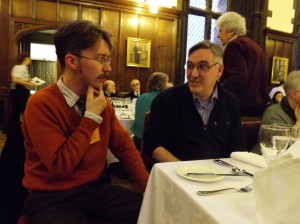
"Belief" is a critical category in the study of religion. Indeed, for some scholars, it is the very essence of religion; as Clifford Geertz wrote, "To know, one must first believe." Others, however, see the emphasis on belief as part of the Protestant bias in the development of the discipline, and have proposed various ways of avoiding talking about it at all. In this interview recorded at the recent SOCREL conference in Durham, Martin Stringer explains his model of situational belief to David, and explains how it not only better represent how beliefs actually function for individuals, but also challenges preconceived notions of what "religion" "is" in several ways.
You can also download this interview, and subscribe to receive our weekly podcast, on iTunes. And if you enjoyed it, please take a moment to rate us, or use our Amazon.co.uk or Amazon.com link to support us when buying your important books etc.
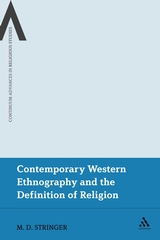
Professor Martin Stringer is Professor of Liturgical and Congregational Studies and Deputy Pro Vice Chancellor in the Department of Theology and Religion at the University of Birmingham. He trained as a social anthropologist, and his research has focused on Christian groups in the UK and diversity among inner-city communities. His theoretical approach is to use anthropological methods of ethnography in detailed and extended studies of real life situations, where he believes religion can be most fruitfully understood.
His recent publications include Rethinking the Origins of the Eucharist (SCM, 2011) and A Sociological History of the Christian Worship (Cambridge University Press, 2005). However, of particular relevance to this interview is Contemporary Western Ethnography of the Definition of Religion (Continuum, 2008). Also of interest is his paper ‘Towards a Situational Theory of Belief’ (Journal of the Anthropological Society of Oxford, Vol XXVII, No 3, Michaelmas 1996, pp217-234).
Ralph Hood on Mysticism
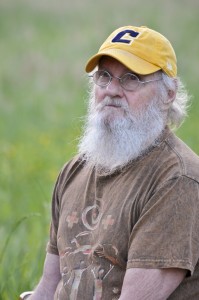 One of the primary interests of scholars and researchers from diverse academic disciplines has been in exploration of mysticism. Mysticism has been observed within a variety of traditions and philosophies from Neo-Platonism to Hinduism and Christianity. Mysticism as a field of study is pregnant with possibilities for academic inquiry, both cross-disciplinary and discipline specific. The field of psychology is one of those disciplines which have sought to explore the richness of individual claims of mystical experience. This has been done with theoretical depth and methodological sophistication and is centralized within a variety of tools of empirical inquiry.
One of the primary interests of scholars and researchers from diverse academic disciplines has been in exploration of mysticism. Mysticism has been observed within a variety of traditions and philosophies from Neo-Platonism to Hinduism and Christianity. Mysticism as a field of study is pregnant with possibilities for academic inquiry, both cross-disciplinary and discipline specific. The field of psychology is one of those disciplines which have sought to explore the richness of individual claims of mystical experience. This has been done with theoretical depth and methodological sophistication and is centralized within a variety of tools of empirical inquiry.
The study of mysticism necessitates addressing issues of ontology and epistemology, relating to the methodological processes for studying direct personal experiences. Within the psychological perspective, some of these concerns are mediated through what both Porpora (2006) and Hood, Hill and Spika (2009) describe as methodological agnosticism. While Silver (2011) argues that there is no such thing as true objectivity in research, certainly academics and researchers can strive for a post-positivist paradigm of objectivity where they attempt to remove bias and subjectivity from their research or hermeneutic inquiry.
While there is plenty of hermeneutic and observational potential in the study of Mysticism, more needs to be done in exploration of the experiential and psychological correlates related to personal experiences. Dr. Ralph W. Hood Jr. has extensive experience in the field of psychology of religion and particularly in the study of mysticism and mystical experience. As an early pioneer in the renaissance of the field of psychology of religion, Hood's work is extensive and prolific exploring a variety of research topics in the social sciences of religion. Moreover, much of his collaborative work extends beyond the field of psychology to include sociology, religious studies, medicine, and a variety of other disciplines in the social scientific study of religion. In this week’s podcast, Chris SIlver is joined by Ralph Hood to discuss in detail his work on mysticism and the benefits and disadvantages of this academic exercise.
You can also download this interview, and subscribe to receive our weekly podcast, on iTunes. And if you enjoyed it, please take a moment to rate us, or use our Amazon.co.uk or Amazon.com link to support us when buying your important books etc.
Ralph W. Hood Jr. is professor of psychology at the University of Tennessee at Chattanooga. He is a former editor of the Journal for the Scientific Study of Religion, and former co-editor of the Archive for the Psychology of Religion and The International Journal for the Psychology of Religion. He is a past president of division 36 (psychology of religion) of the American Psychological Association and a recipient of its William James, Mentor, and Distinguished Service awards. He has published over 200 articles in the psychology of religion and has authored, co-authored, or edited numerous book chapters and eleven books, all dealing with the psychology of religion.
References
- Hood, R.W., P.C. Hill, and B. Spilka. (2009). The psychology of religion: An empirical approach. 4th ed. New York, NY: The Guilford Press.
- Porpora, D. V. (2006). Methodological atheism, methodological agnosticism and religious experience. Journal for the Theory of Social Behavior, 36, 57–75.
- Silver, C. F. (2011). Psychology and Religion: Explorations in paradigm, theory, and method. In Weathington, B. L., Cunningham, C. J. L., O’Leary, B. J., & Biderman, M. D. (Eds.), Applied Psychology in Everyday Life (pp. 71-107). Newcastle upon Tyne, United Kingdom: Cambridge Scholars Publishing.
Peter Collins on Religion and the Built Environment
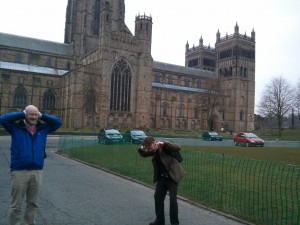
In our 'post-modern' world, it should come as no surprise that the built environment - skyscrapers or teepees, sports stadiums or roadside shrines - impact upon the daily lives of individuals and communities in multifarious ways. Buildings dominate our skylines, they shape the nature, size, sound and smell of events within their walls, they provide a connection to the recent and distant past, and they serve as a physical, material instantiation of any number of contextual discourses. But what about the relationship between 'religion' and these (generally) human-made structures? How does a building become recognized as in some sense 'religious'? What other information do we need to infer things about the purpose of a building? About its impact? This week's podcast features Chris talking with Dr Peter Collins about these sorts of questions, during the BSA SocRel Conference in Durham (April 2013). This sociology of religion conference occurred within a Chemistry department, at one of Britain's most historic universities, in the vicinity of Durham Castle, and the magisterial Durham Cathedral... unsurprisingly, the built environment had a significant impact.
You can also download this interview, and subscribe to receive our weekly podcast, on Kim Knott on Religion, Space and Locality and Katie Aston's essay entitled Finding space for nonreligion? Further possibilities for spatial analysis.
 Dr Peter J. Collins is Senior Lecturer in the Department of Anthropology at Durham University, UK. completed an MA in development studies and a PhD in social anthropology at Manchester University. His research interests include religion (especially Quakerism), ritual and symbolism; historical anthropology; qualitative research methods, particularly narrative analysis; the anthropology of Britain; aesthetics and the built environment. He was recently engaged in an NHS-funded projects looking at hospital design and the space and place of hospital chaplaincies. Recent publications include "On Ritual Knowledge" (in Diskus: The Journal of the British Association for the Study of Religions. Vol 13. 2013), "Acute Ambiguity: Towards a Heterotopology of Hospital Chaplaincy" (in Social Identities Between the Sacred and the Secular, ed. Abby Day, Giselle Vincett and Christopher R. Cotter, Ashgate. pp. 39-60. 2013) and "On the Materialisation of Religious Knowledge and Belief" (in Religion and Knowledge, ed. E.A. Arweck and M. Guest, Ashgate. 2012).
Dr Peter J. Collins is Senior Lecturer in the Department of Anthropology at Durham University, UK. completed an MA in development studies and a PhD in social anthropology at Manchester University. His research interests include religion (especially Quakerism), ritual and symbolism; historical anthropology; qualitative research methods, particularly narrative analysis; the anthropology of Britain; aesthetics and the built environment. He was recently engaged in an NHS-funded projects looking at hospital design and the space and place of hospital chaplaincies. Recent publications include "On Ritual Knowledge" (in Diskus: The Journal of the British Association for the Study of Religions. Vol 13. 2013), "Acute Ambiguity: Towards a Heterotopology of Hospital Chaplaincy" (in Social Identities Between the Sacred and the Secular, ed. Abby Day, Giselle Vincett and Christopher R. Cotter, Ashgate. pp. 39-60. 2013) and "On the Materialisation of Religious Knowledge and Belief" (in Religion and Knowledge, ed. E.A. Arweck and M. Guest, Ashgate. 2012).
Paul Williamson on Serpent Handling
The use of serpents – more commonly known as ‘venomous snakes’ – within religious practices is by no means a new phenomenon within religious and cultural contexts. Certainly there are plenty of examples of where serpents have been power symbols both in totem and ritualistic traditions. Moreover, many of the world’s population identify with serpent play as a potentially dangerous exercise. Within this risk potential, the serpent carries a variety of different auspicious meanings related to culture and/or the impermanence of life. The Southeast United States is no exception. The Appalachian Mountain region of the Southeast was geographically isolated in many parts from the rest of the United States until recently. This isolation coupled with the challenges of a rural socio-economic lifestyle created uncertainty within the minds of many inhabitants. Religious beliefs and practices provided meaning and certainty within an uncertain world. Serpent Handling traditions of Appalachia were no exception.
Serpent handling as a religious practice appeared within the first decade of the twentieth century. The practice emerged in east Tennessee and spread to other parts of the Southern Appalachian Mountain region of the United States. While many different groups, both Holiness and Pentecostal, enact the practice, the serpent handling groups themselves have no parent organization that binds them together. What binds the groups together is a sharing in diversity of belief with similar religious practices (Burton, 1993 pg. 20-21). Serpent handling sects are historically and philosophically linked to three forms of American Protestantism: Holiness, fundamentalism, and Pentecostalism, although typically many groups would identify their membership as Holiness (Hood, found in Brown & Mcdonald, 2000). The fundamentalists influence among serpent handlers is in their acceptance of a plain reading of the Bible when it is appropriate (Hood, Hill, & Williamson, 2005).
As handling serpents began spreading throughout the Southern Appalachians, the notoriety of serpent bite deaths increased (Hood & Williamson, 2008). Much of the public fascination with these traditions relates primarily to the dangerous practice of handling of serpents or drinking of poison as part of the religious ritual. Many outsider observers assume that serpent handling traditions are of one religion or of a single theology. Such an assumption cannot be further from the truth. Many of the churches diverge on issues of textual interpretation of the Bible and theology. Their only unifying practice is dictated within Mark 16. For those within these traditions, handling of serpents or drinking of poison is an issue of religious freedom. Most states have enacted laws outlawing the practice of serpent handling. Regardless of the legal discrimination or the physical risk to themselves, the serpent handling sects assume the risk to follow God’s commandment (Hood, 1998).
In this week's podcast, Chris Silver and Dr Paul Williamson explore Williamson's research, and by proxy his colleague Ralph W. Hood Jr. (see our podcast from 2 weeks ago) related to documentation of the Serpent Handling Sects of Appalachia. By some accounts these traditions are in decline due to globalization. Williamson has attempted to study these traditions qualitatively and quantitatively to better understand the profound sense of religious commitment and deeper meaning of the theology and practices of the Serpent Handling sects.
You can also download this interview, and subscribe to receive our weekly podcast, on iTunes. And if you enjoyed it, please take a moment to rate us, or use our Amazon.co.uk or Amazon.com link to support us when buying your important books etc.
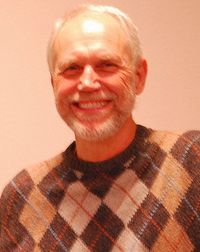 W. Paul Williamson is professor of psychology at Henderson State University (USA), although he has not always been in academic research. He was previously a full-time clergy in a Pentecostal denomination for 17 years, but then became more interested in religion from a psychological perspective. This led to his studies at the University of Tennessee, Knoxville, where he earned a Ph.D. in experimental psychology with training in both quantitative and qualitative research methodologies. Applying these approaches to the psychology of religion, he has published work in the areas of mysticism, religious fundamentalism, Christian serpent handling, and, most recently, spiritual transformation within the context of substance abuse recovery. He has co-authored The Psychology of Religious Fundamentalism (2005, Guilford Press), with Ralph W. Hood, Jr., and Peter C. Hill; and Them That Believe: The Power and Meaning of the Christian Serpent Handling Tradition (2008; University of California Press), with Ralph W. Hood, Jr. He is a recipient of the Margaret Gorman Early Career Award and the Distinguished Service Award, both from the American Psychological Association, Division 36: Society for the Psychology of Religion and Spirituality.
W. Paul Williamson is professor of psychology at Henderson State University (USA), although he has not always been in academic research. He was previously a full-time clergy in a Pentecostal denomination for 17 years, but then became more interested in religion from a psychological perspective. This led to his studies at the University of Tennessee, Knoxville, where he earned a Ph.D. in experimental psychology with training in both quantitative and qualitative research methodologies. Applying these approaches to the psychology of religion, he has published work in the areas of mysticism, religious fundamentalism, Christian serpent handling, and, most recently, spiritual transformation within the context of substance abuse recovery. He has co-authored The Psychology of Religious Fundamentalism (2005, Guilford Press), with Ralph W. Hood, Jr., and Peter C. Hill; and Them That Believe: The Power and Meaning of the Christian Serpent Handling Tradition (2008; University of California Press), with Ralph W. Hood, Jr. He is a recipient of the Margaret Gorman Early Career Award and the Distinguished Service Award, both from the American Psychological Association, Division 36: Society for the Psychology of Religion and Spirituality.
According to Williamson, “What so often is missing in research is a balanced approach in the psychological study of religious phenomena. It typically is either from the objective standpoint or from the subjective point of view. What is needed for a more complete understanding of a particular phenomenon is the blending together of both perspectives in the use of quantitative and qualitative methodologies.”
References:
- Brown, Fred & Mcdonald, Jeanne (2000). The serpent handlers: three families and their faith. Blair publishing: Winston-Salem, North Carolina.
- Burton, Thomas. (1993). Serpent handling believers. University of Tennessee Press: Knoxville, Tennessee.
- Hood, R. W., Jr., (1998). “When the spirit maims and kills: social psychological considerations of the history of serpent handling sects and the narrative of handlers. The International Journal for the Psychology of Religion, 8, 71-96.
- Hood, R. W., Jr., Hill, P.C., & Williamson, W. P. (2005). The psychology of religious fundamentalism. New York: Guilford.
- Hood, R. W., Jr. & Williamson, W. P. (2008). The power and meaning of the Christian serpent- handling tradition. Berkeley, CA: University of California Press.
Religion in a Networked Society
 Media, religion and culture is an emerging area, with much attention being given to four themes, namely authority, community, identity and ritual. Research has focused on a wide range of topics, including different religions in virtual worlds; religion and video games; online cyber-churches and temples; and an exploration into how religious organisations and individuals are accepting or rejecting digital media. Heidi Campbell is one of the leading scholars in the field of media, religion and culture and has written extensively about this topic; providing us with an insight into the relationship between digital culture and religion. For scholars of religious studies, media studies and other related disciplines, the exploration of religion and the internet provides an insight into the relationship between religion and technology and consequently, the possible impact and challenge to traditional religion.
Media, religion and culture is an emerging area, with much attention being given to four themes, namely authority, community, identity and ritual. Research has focused on a wide range of topics, including different religions in virtual worlds; religion and video games; online cyber-churches and temples; and an exploration into how religious organisations and individuals are accepting or rejecting digital media. Heidi Campbell is one of the leading scholars in the field of media, religion and culture and has written extensively about this topic; providing us with an insight into the relationship between digital culture and religion. For scholars of religious studies, media studies and other related disciplines, the exploration of religion and the internet provides an insight into the relationship between religion and technology and consequently, the possible impact and challenge to traditional religion.
On a recent visit to Edinburgh, the Religious Studies Project (Louise) met with Heidi Campbell (the interview is set in a restaurant and so on occasion you may hear some background noise). The interview focuses on her recent article in the Journal of the American Academy of Religion (March 2012), "Understanding the Relationship between Religion Online and Offline in a Networked Society", which presents five key traits of the concept of "networked religion". These are: networked community; storied identities; shifting authority; convergent practice; and a multisite reality. Campbell presents an overview of each of these traits and concludes by questioning how digital communications technologies might affect religious authority in the future.
You can also download this interview, and subscribe to receive our weekly podcast, on iTunes. And if you enjoyed it, please take a moment to rate us, or use our Amazon.co.uk or Amazon.com link to support us when buying your important books etc.
Heidi Campbell is Associate Professor of Communication at Texas A&M University where she teaches in Telecommunications and Media Studies. Campbell’s teaching and research explores the social shaping of technology, rhetoric of new media, and themes related to the intersection of media religion and culture, with a special interest in the internet and mobile phones. She has written extensively about media, religion and culture, comprising of a number of journal articles and books, including When Religion Meets New Media (Routledge, 2010) and her recent publication Digital Religion. Understanding Religious Practice in New Media Worlds (Routledge, 2012).
Select Publications:
Campbell, H. (2010). When religion meets new media. London, UK: Routledge.
Campbell, H. (2012). Understanding the Relationship between Religion Online and Offline in a Networked Society, Journal of the American Academy of Religion, 80 (1), 64-93.
This interview was based upon the article: http://jaar.oxfordjournals.org/content/80/1/64.abstract
Cross-Cultural Identities Roundtable
It's Identities? Week here at the Religious Studies Project, with not one but two specially-recorded roundtable discussions about how identity is negotiated (if indeed it is) through our religious, ethnic, sexual and socio-cultural identities.
 This first podcast, recorded at the Open University's Contemporary Religion in Historical Perspective conference in Milton Keynes in May, organised with Paul-Francois Tremlett (convenor of the OU's Cross-Cultural Identities research theme) focuses on identity and dislocation, either through diaspora or through rapid social change. Jasjit Singh's research focuses on how young British Sikh's negotiate their religious identity; Isabel Cabana Rojas discusses the emigration of Peruvian Catholics to Japan in the 19th century and the subsequent return of some of them to Peru; Marta Turkot discusses the rapidly changing religious situation in Poland today, one of the bastions of Catholicism in Europe. The discussion takes these as a starting-points, however, to address broader issues of identity formation.
This first podcast, recorded at the Open University's Contemporary Religion in Historical Perspective conference in Milton Keynes in May, organised with Paul-Francois Tremlett (convenor of the OU's Cross-Cultural Identities research theme) focuses on identity and dislocation, either through diaspora or through rapid social change. Jasjit Singh's research focuses on how young British Sikh's negotiate their religious identity; Isabel Cabana Rojas discusses the emigration of Peruvian Catholics to Japan in the 19th century and the subsequent return of some of them to Peru; Marta Turkot discusses the rapidly changing religious situation in Poland today, one of the bastions of Catholicism in Europe. The discussion takes these as a starting-points, however, to address broader issues of identity formation.
You can also download this interview, and subscribe to receive our weekly podcast, on iTunes. And if you enjoyed it, please take a moment to rate us, or use our Amazon.co.uk or Amazon.com link to support us when buying your important books etc.
You can read Paul-Francois Tremlett's report of the two Cross-Cultural Identities panels at the conference here.
 Paul-François Tremlett is Lecturer in Religious Studies at the Open University. His PhD research focused on local religion and national identity in the Philippines at the extinct volcano Mount Banahaw. His present research is more theoretically oriented, including spatialities and geographies and place-making practices; modernity(ies) and secularism(s); Marxism and classical and contemporary social theory.
Paul-François Tremlett is Lecturer in Religious Studies at the Open University. His PhD research focused on local religion and national identity in the Philippines at the extinct volcano Mount Banahaw. His present research is more theoretically oriented, including spatialities and geographies and place-making practices; modernity(ies) and secularism(s); Marxism and classical and contemporary social theory.
 Dr Jasjit Singh has recently completed a PhD which examined the religious lives of 18-30 year old British Sikhs focusing on the different ways in which young Sikhs now learn about Sikhism. He has spoken about his research on BBC Radio 4 and has published a number of academic articles and book chapters. He is currently employed as a post-doctoral research fellow at the University of Leeds and is looking to examine the role of devotional music in identity formation and religious transmission. Further details about his work can be found at: www.leeds.ac.uk/sikhs
Dr Jasjit Singh has recently completed a PhD which examined the religious lives of 18-30 year old British Sikhs focusing on the different ways in which young Sikhs now learn about Sikhism. He has spoken about his research on BBC Radio 4 and has published a number of academic articles and book chapters. He is currently employed as a post-doctoral research fellow at the University of Leeds and is looking to examine the role of devotional music in identity formation and religious transmission. Further details about his work can be found at: www.leeds.ac.uk/sikhs
Identity or Identification?
Identity or Identification? In this second podcast for Identities? Week, the Culture on the Edge group address the issue of religious identity.
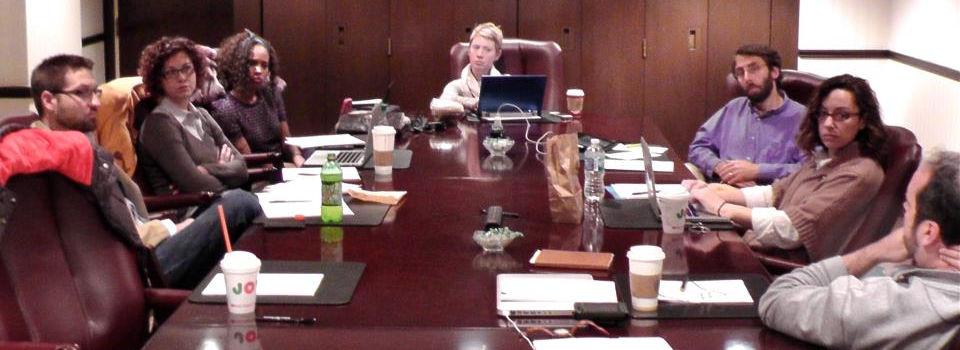
"There is no such thing as identity, only operational acts of identification." - Jean-Francois Bayart
Is our identity - cultural, religious or other - something which causes us to act, or something which we choose to mobilise in certain circumstances? And what part do scholars have in reifying these discourses? Why are certain groups "militant" and not others? And what does this have to do with Hinduism? (Don't ask me, though - I'm a straight white British male and therefore have no cultural identity...)
The group's blog can be read here - although we'll also be featuring their posts on the RSP facebook page. You can also download this interview, and subscribe to receive our weekly podcast, on iTunes. And if you enjoyed it, please take a moment to rate us, or use our Amazon.co.uk or Amazon.com link to support us when buying your important books etc.
Culture on the Edge is an international scholarly working group, centered at the University of Alabama and begun in the Spring of 2012, whose aim is to use social theory to offer more nuanced understandings of how those things that we commonly call identities are produced, managed, and continually reproduced. Culture on the Edge therefore tackles, at a variety of social sites, the contradiction between, on the one hand, the historicity of identity (which is now generally seen by scholars to be always fluid over place and time), and, on the other, the nagging presumption of a static and ahistorical origin against which cultural change is thought to be measured.
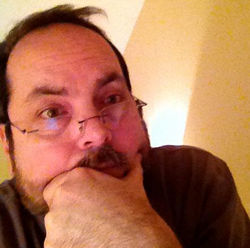
Russell McCutcheon has a dog named Izzy.
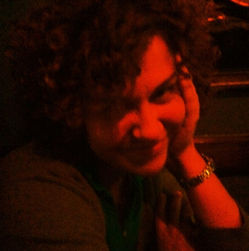
K. Merinda Simmons is an Assistant Professor of Religious Studies at The University of Alabama. Her manuscript, Mary Prince and Her Sisters: Gender, Race, Migration, and the Problem of Authenticity, has recently been contracted by Ohio State University Press and her other books include Studying Religion: A Reader (Acumen, forthcoming) and the co-edited Race and Displacement (The University of Alabama Press, 2013). She is also the co-editor (along with Houston Baker) for the newly contracted collection, The Trouble with Post-Blackness(Columbia University Press), examining the assumptions that make possible the ideal of “post-blackness” that many media moguls, politicians, and public intellectuals have now adopted.
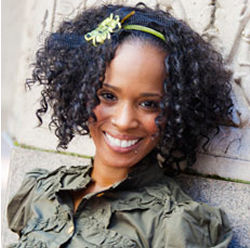
Monica R. Miller is Assistant Professor of Religion and Africana Studies at Lehigh University and among other publications, author of Religion and Hip Hop (Routledge, 2012). Miller is Principal Investigator of a large scale survey project entitled “Remaking Religion” which examines changing patterns of religion and irreligion in youth culture in Portland, Oregon. Monica also is editing Claiming Identity in the Study of Religion, the first book in the Culture on the Edge book series. Follow Monica on Twitter.
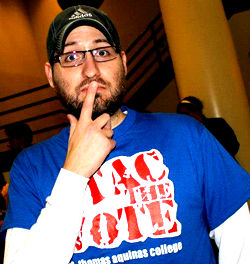
A Critical Introduction to the Study of Religion (Equinox, 2012), and Religious Experience: A Reader, co-edited with Russell T. McCutcheon (Equinox, 2012).
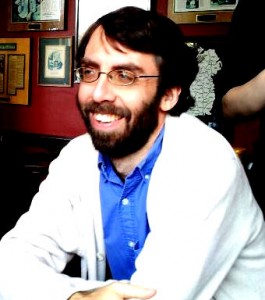 Steven Ramey is Associate Professor in the Department of Religious Studies and Director of Asian Studies at the University of Alabama. His book Hindu Sufi or Sikh (Palgrave, 2008) focuses on communities who identify as Sindhi Hindus and the ways they contest dominant understandings of identities, both in India and beyond. His newest project addresses the assumptions in the language of religious labels and the ways those assumptions determine research and valorize particular constructions of religions. He is Series Editor of Culture on the Edge: Studies in Identity Formation, a book series with Equinox Publishers.
Steven Ramey is Associate Professor in the Department of Religious Studies and Director of Asian Studies at the University of Alabama. His book Hindu Sufi or Sikh (Palgrave, 2008) focuses on communities who identify as Sindhi Hindus and the ways they contest dominant understandings of identities, both in India and beyond. His newest project addresses the assumptions in the language of religious labels and the ways those assumptions determine research and valorize particular constructions of religions. He is Series Editor of Culture on the Edge: Studies in Identity Formation, a book series with Equinox Publishers.
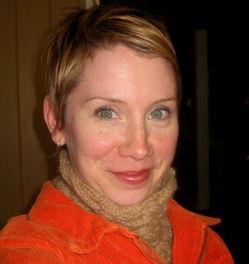 Leslie Dorrough Smith is an Assistant Professor of Religious Studies and Director of the Women’s and Gender Studies Department at Avila University (Kansas City, MO). She has just finished a book manuscript, contracted by Oxford University Press, that explores the uses for rhetorics of chaos within such groups as Concerned Women for America, one of the nation’s most powerful and vocal conservative Christian groups. Among her articles are: “Divine Order, Divine Myth: Uncovering the Mythical Construction of Gender Ideals in Protestant Fundamentalist Circles” (ARC: The Journal of the Faculty of Religious Studies, McGill University, 2002) and “What’s in a Name?: Scholarship and the Pathology of Conservative Protestantism” (Method & Theory in the Study of Religion, 2008), and a chapter in After the Passion is Gone: American Religious Consequences (AltaMira Press, 2004) entitled “Living In the World, But Not of the World: Understanding Evangelical Support for ‘The Passion of the Christ’.”
Leslie Dorrough Smith is an Assistant Professor of Religious Studies and Director of the Women’s and Gender Studies Department at Avila University (Kansas City, MO). She has just finished a book manuscript, contracted by Oxford University Press, that explores the uses for rhetorics of chaos within such groups as Concerned Women for America, one of the nation’s most powerful and vocal conservative Christian groups. Among her articles are: “Divine Order, Divine Myth: Uncovering the Mythical Construction of Gender Ideals in Protestant Fundamentalist Circles” (ARC: The Journal of the Faculty of Religious Studies, McGill University, 2002) and “What’s in a Name?: Scholarship and the Pathology of Conservative Protestantism” (Method & Theory in the Study of Religion, 2008), and a chapter in After the Passion is Gone: American Religious Consequences (AltaMira Press, 2004) entitled “Living In the World, But Not of the World: Understanding Evangelical Support for ‘The Passion of the Christ’.”
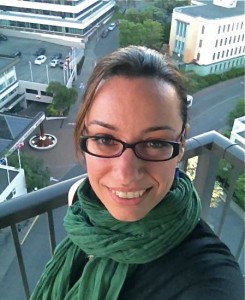 Vaia Touna earned her BA and MA at Aristotle University of Thessaloniki, Greece, in the study of Hellenistic religions, and ancient Greek literature, and is currently writing her doctoral dissertation at the University of Alberta in Edmonton, Canada. Her research focuses on the sociology of identity formation with examples drawn from ancient, to modern Greece. Vaia is the Editorial Assistant for the journal Method & Theory in the Study of Religion (published by Brill of the Netherlands). Among her publications are: “The Manageable Self in the Early Hellenistic Era” published in The Bulletin for the Study of Religion (2010) and “Redescribing Iconoclasm: Holey Frescoes and Identity Formation,” a chapter in Failure and Nerve in the Academic Study of Religion (Acumen, 2012). Vaia is also the editor for The Problem of Nostalgia in the Study of Identification in the Culture on the Edge Book Series.
Vaia Touna earned her BA and MA at Aristotle University of Thessaloniki, Greece, in the study of Hellenistic religions, and ancient Greek literature, and is currently writing her doctoral dissertation at the University of Alberta in Edmonton, Canada. Her research focuses on the sociology of identity formation with examples drawn from ancient, to modern Greece. Vaia is the Editorial Assistant for the journal Method & Theory in the Study of Religion (published by Brill of the Netherlands). Among her publications are: “The Manageable Self in the Early Hellenistic Era” published in The Bulletin for the Study of Religion (2010) and “Redescribing Iconoclasm: Holey Frescoes and Identity Formation,” a chapter in Failure and Nerve in the Academic Study of Religion (Acumen, 2012). Vaia is also the editor for The Problem of Nostalgia in the Study of Identification in the Culture on the Edge Book Series.

